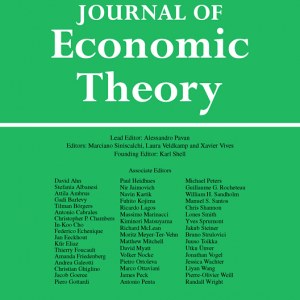
Baillon, A., Bleichrodt, H., Li, C. and Wakker, \PeterP.\ (2021). Belief hedges: Measuring ambiguity for all events and all models Journal of Economic Theory, 198:.
-
Affiliated authors
-
Publication year2021
-
JournalJournal of Economic Theory
We introduce belief hedges, i.e., sets of events whose uncertain subjective beliefs neutralize each other. Belief hedges allow us to measure ambiguity attitudes without knowing those subjective beliefs. They lead to improved ambiguity indexes that are valid under all popular ambiguity theories. Our indexes can be applied to real-world problems and do not require expected utility for risk or commitments to two-stage optimization, thereby increasing their descriptive power. Belief hedges make ambiguity theories widely applicable.